
At the downslope edge of a small wood Fritz's Albanian scouts returned to report sighting the enemy.
Nothing for it, thought Fritz,
we'll have to fight from downhill and in the open again. Quickly Fritz instructed Robert on how he wanted the infantry positioned, and then he led the cavalry forward at a fast walk.

'No hesitation Hans. When you see them, lower lances and strike!'

<a
'Then fall back and form up again. Give them no time to organize an effective defense.'

Riding hard around the right flank Fritz watched the first charge strike home. One company of Teutons on the center right was slightly behind the other three and got caught in the Danish lines. They withdrew in good order and formed for the second charge, but again got caught, this time by the War Clerics. With over half their company dead and their sergeant's head crushed by a war mace the rest of the men gave up the fight and routed.
 %^$&
%^$& thought Fritz,
have to hope Robert can rally them. They've bloodied the Danes, but I'll need them back for more hard work before this day is done.
Half the Danish Norse Archers were broken and bleeding on the turf, and many axemen and swordsmen beside, but the rest of the infantry and the deadly War Clerics had broken into a run. Fritz and Hans, on either side of the formation, had flanked too deep and were being left behind with the swordstaves that formed the Danish rearguard. Unwilling to charge their long poles, Fritz ordered his men to pursue the Danes even as they entered a forest. Brutal Teutonic charges continued to strike home on all sides of the Danes, but more and more of the knights were lost with every charge, especially in the wood.

The lead company of War Clerics, in pursuit of the fleeing Teutons, met Robert's line at a full charge, but much diminished by bolts and arrows. The spearmen held, the Teutons rallied, and very soon the War Clerics were no more.

The rallied Teutons were instantly thrown back into the heart of the battle, determined to redeem themselves by halting the very center of the Danish infantry line in full range of our massed crossbows. The tactic was effective, but very costly.

Fritz had yet to catch up to the Danish infantry, though he'd seen Hans butcher some axemen ahead of him, and now two companies of War Clerics were trailing Fritz through the forest. Except for a few fool Norse Archers who were out of position, Fritz's guardsmen had been ineffective in this battle.

As Fritz broke into the open, still pursued by a hundred and twenty elite War Clerics, he was just in time to see the first Danes reach Robert's stake line. They charged through it and were surrounded, though faced with only crossbowmen behind the stakes.

As the depleted Danish infantry hit Robert's lines the Germans bent, but held. Danish infantry was scattered all across the front of the field, little of it in a cohesive unit, and the remaining Teutons were still smashing into them at every chance. There was now a choice for Fritz, he could continue leading the War Clercis around the field by the nose, losing men every time they got slowed by a bad patch of snow or caught in trees or infantry, or he could attempt to ride over the largest remaining Norse Axmen formation. Fritz knew this could be a decisive moment in the battle, so he struck, heedless of his own safety. Moments after he crashed into the axemen, also moments before they could flank his mercenary spearmen, the immense tide of War Clerics bore down behind him in a red wave.

Seconds passed as Fritz spurred his horse onward, deeper into the Danish formation. These axemen were the largest infantry formation the Danes had left intact, and they were brutes. Behind him the War Clerics attempted to bash their way through Fritz's guardsmen to reach him, but were stalled by valiant sacrifice after sacrifice. It was a race now, to see if they could reach him before he reached the end of the axemen's formation. A race which, by a heartbeat, Fritz won. The Danish infantry, seeing their sole chance at an effective flank broken, routed and fled for the hills.

What little cavalry Fritz had left turned to pursue the fleeing infantry as Fritz called his own infantry to rally to him and save his men from the War Clerics. The infantry answered the call and gradually eight of Fritz's bodyguard withdrew themselves from the fighting to stand proudly at their commander's side. The infantry pinned the most heavily battered War Cleric company in place and began dragging them down, not a one would escape, but the clever Danish captain withdrew his fifty mounted men and lined them up for a charge into the scraps of infantry Fritz had remaining. Fritz could not allow this to happen, so he rode out with his guardsmen and called a personal challenge to Captain Jens. The man could not refuse, and was the greater fool for it. Watching him launch his charge Fritz rode rapidly across the face of it, avoiding the clerics and breaking their momentum. As they turned to pursue surely they could hear Fritz's mad laughter echo across the field.

While his infantry finished butchering their fellows Fritz led Captain Jens on a merry jaunt back and forth across the field in front of his crossbowmen. His men had incredible discipline, but at last the failure of their leadership told as at that critical moment in the battle when the bare dregs of Fritz's infantry stood clinging by inches to their ground the last mass of the Danish cavalry ran about foolishly and was shot down. When Captain Jens at last found his deserved death his men routed and attempted to flee, only to be scooped up by the Albanians.

All that was left now were the swordstaves of the Danish rearguard. Drilled to hold formation in the face of cavalry at all costs, these men advanced painfully slowly under withering fire from the massed crossbowmen. Fritz ordered his infantry to retreat, they would no longer be necessary.

As the four companies of highly veteran swordstaves advanced the crossbowmen simply gave way before them, turning to fire volleys at every opportunity. Every step they took cost them more lives, but still they advanced.

Only after all but the last twenty of the hundreds of swordstaff militia had been killed did those paltry few break and try to flee. They were all captured. As always when he saw those men wasted on the field as a rearguard Fritz shook his head and wondered what he could do with an army of such 'militia.'

They would call it a heroic victory, but to Fritz it was simply a temporary redemption. Calling Robert to his side, Fritz said, 'Have the walking wounded bound up and leave them here to care for the more desperately injured. The rest of us will prepare to ride on, to relieve the siege of Hamburg.'



Leaving Robert standing there in shock, Fritz walked his horse back to the site of the first strike where a surprising number of the valiant Teutons were struggling to reclaim lost horses, Fritz mused to himself, 'It's not a good day to be a Dane. Indeed, I mean to see that few days from here until eternity are.'










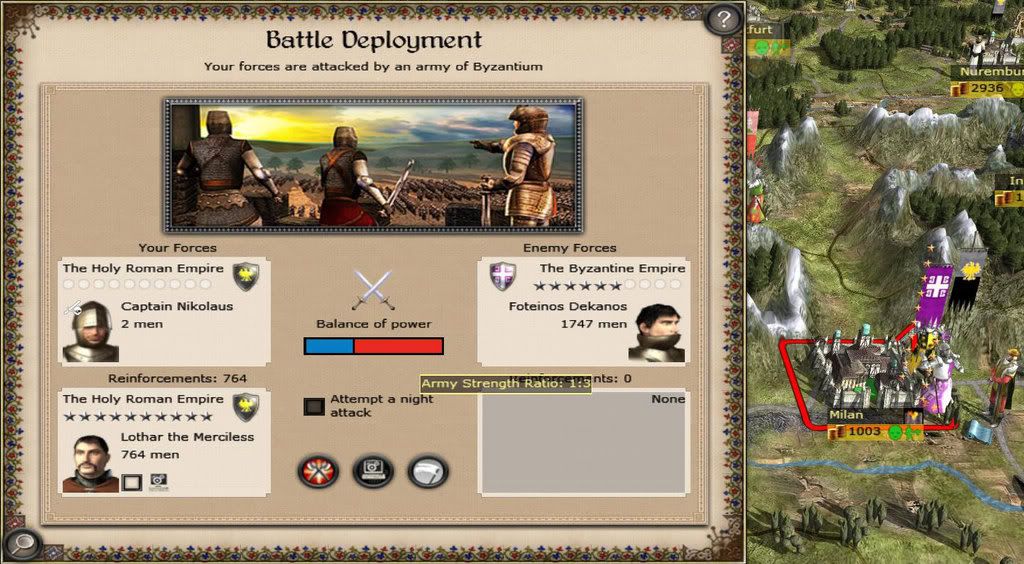
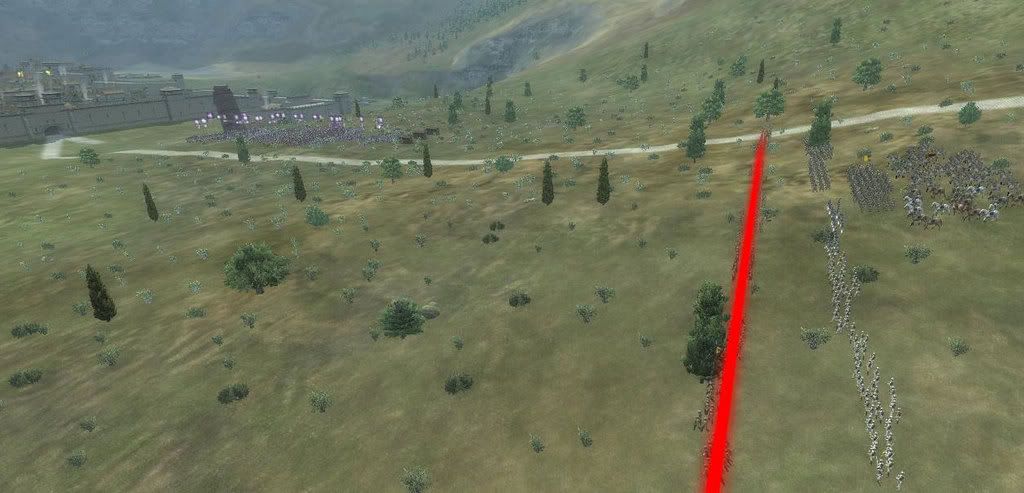
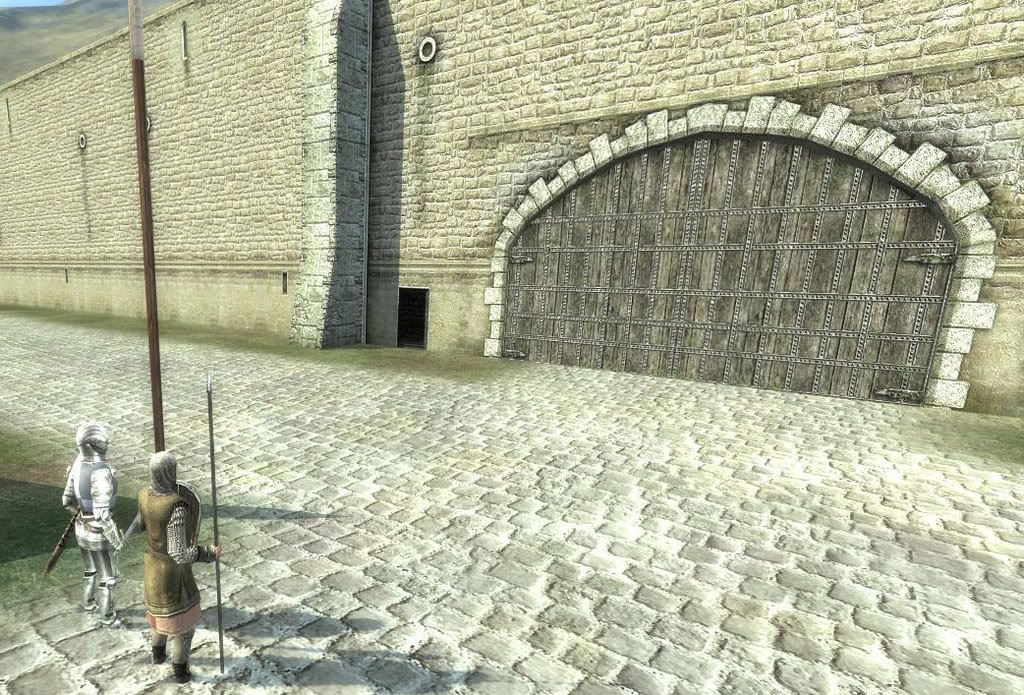
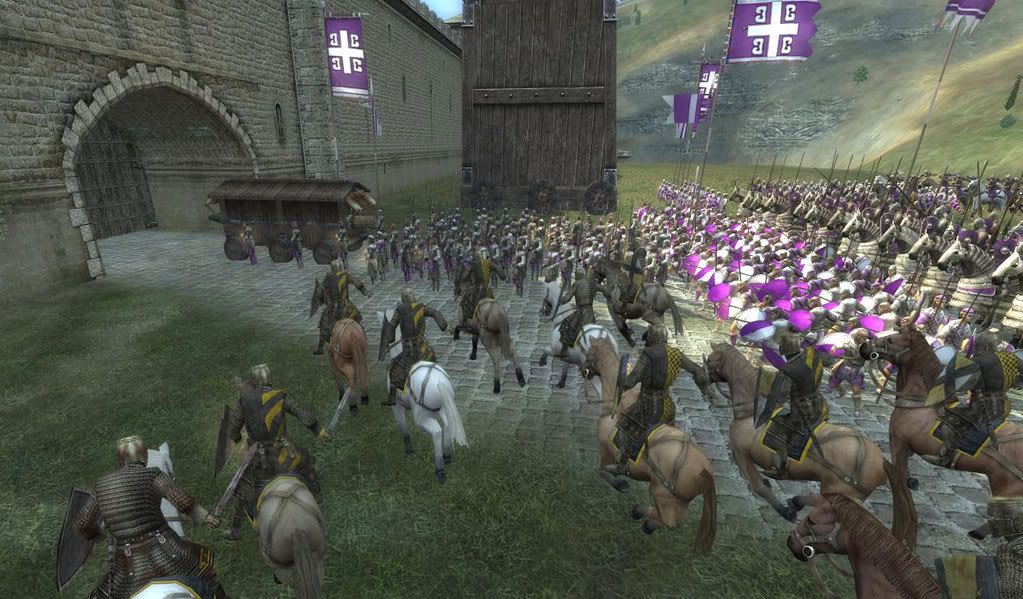
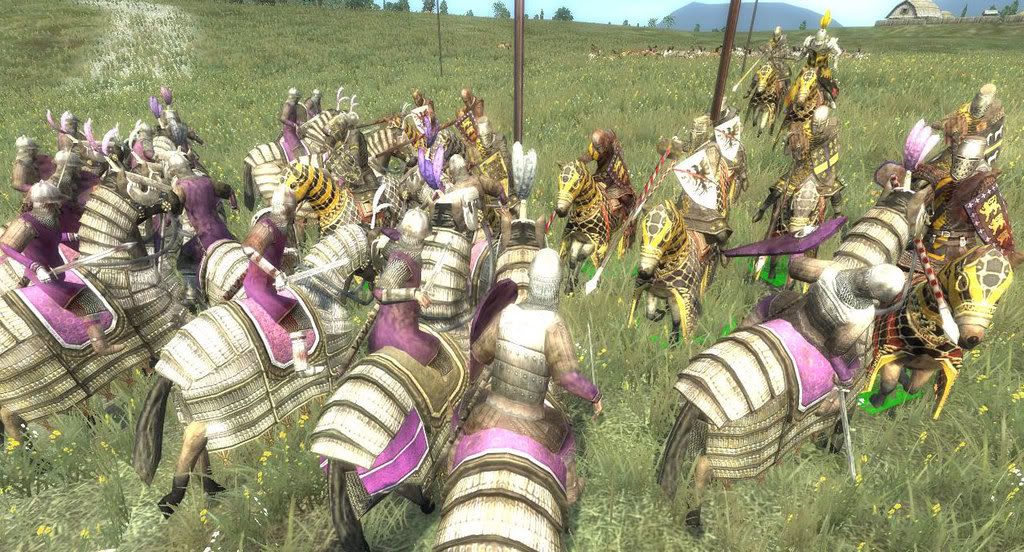
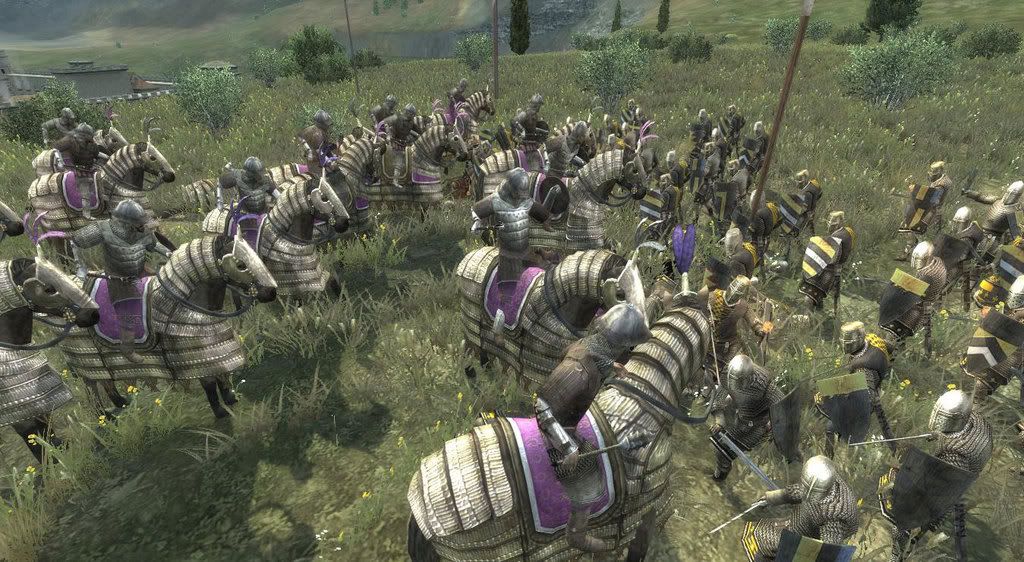

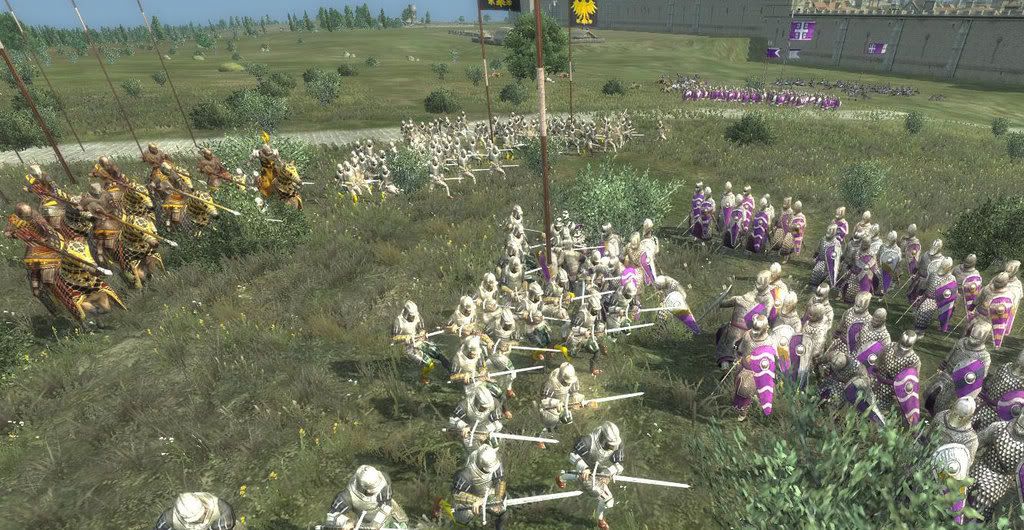
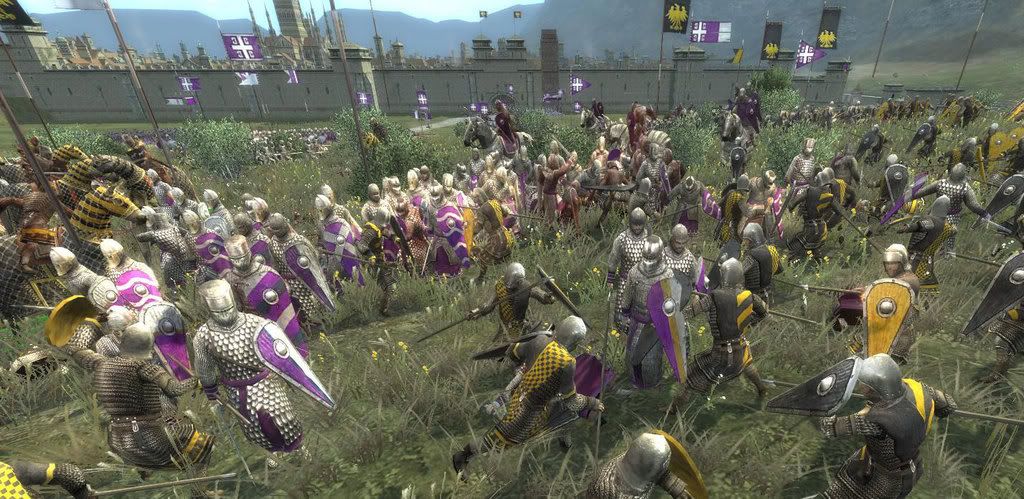
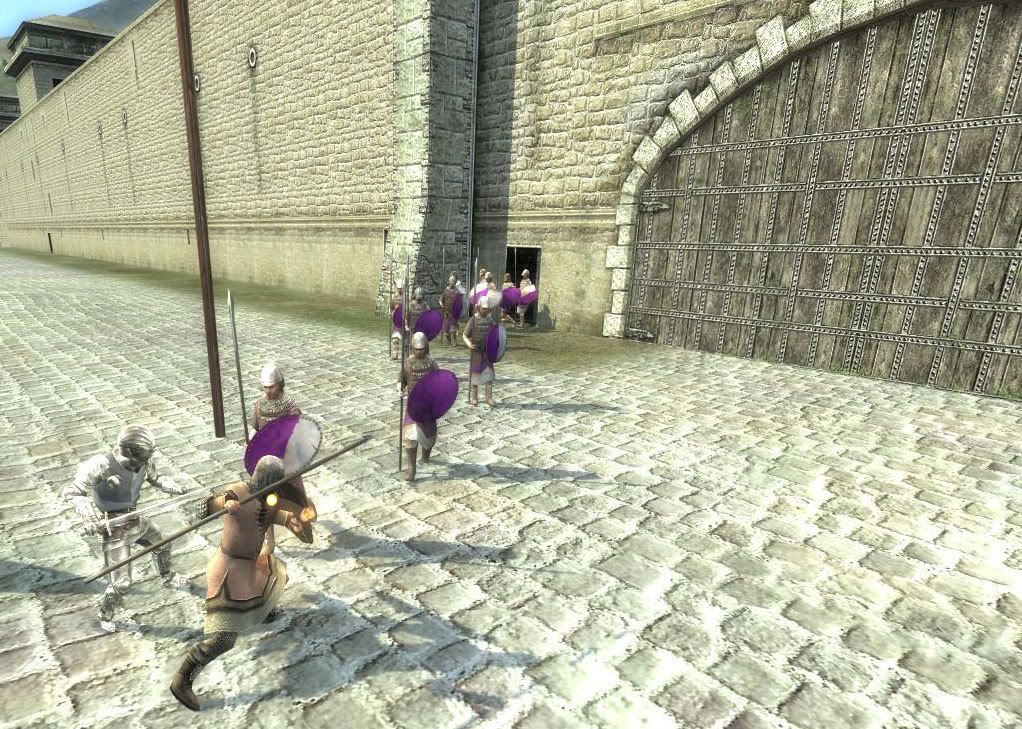
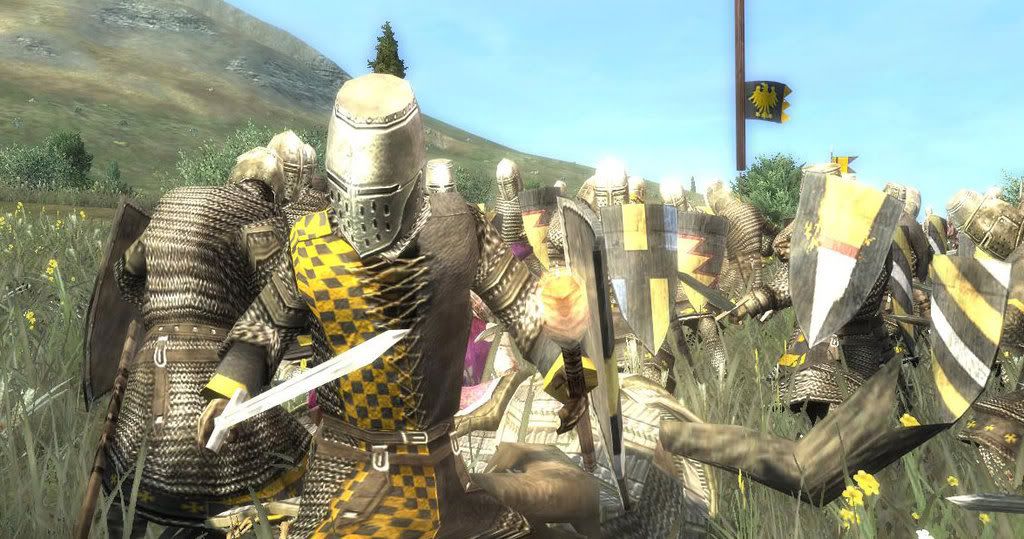
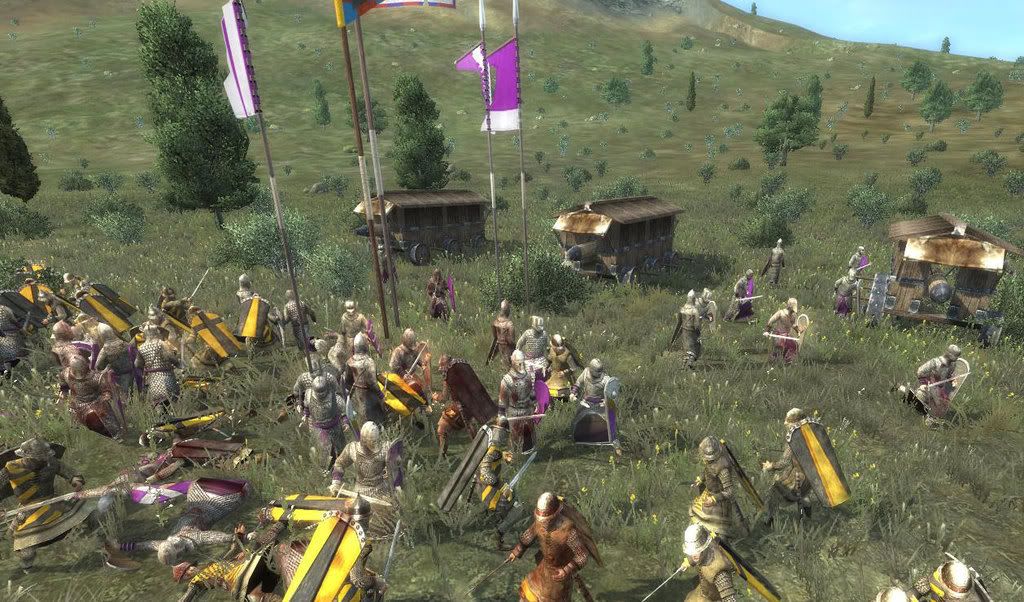
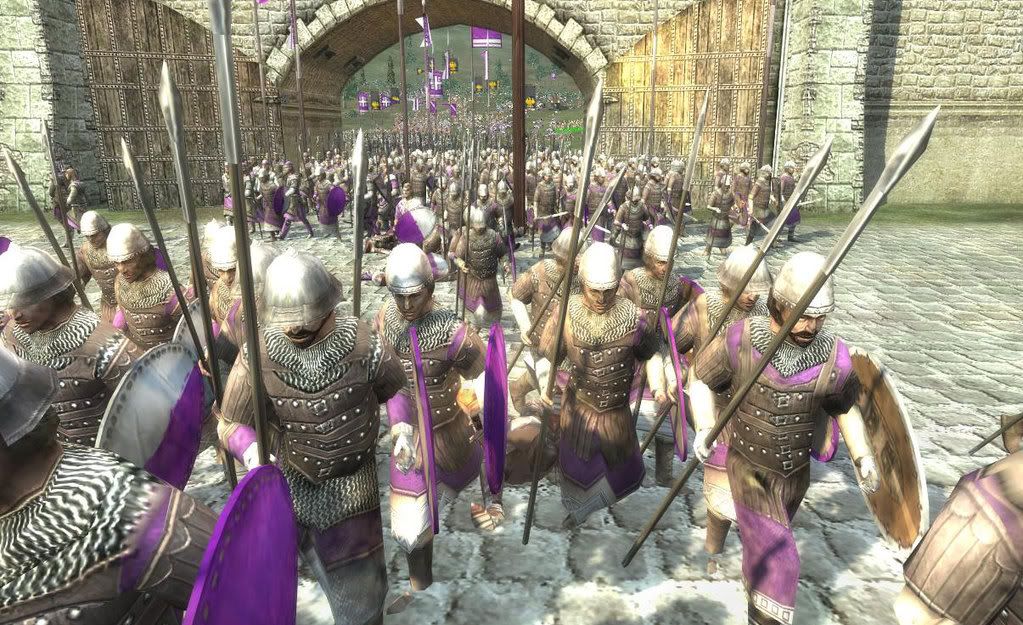
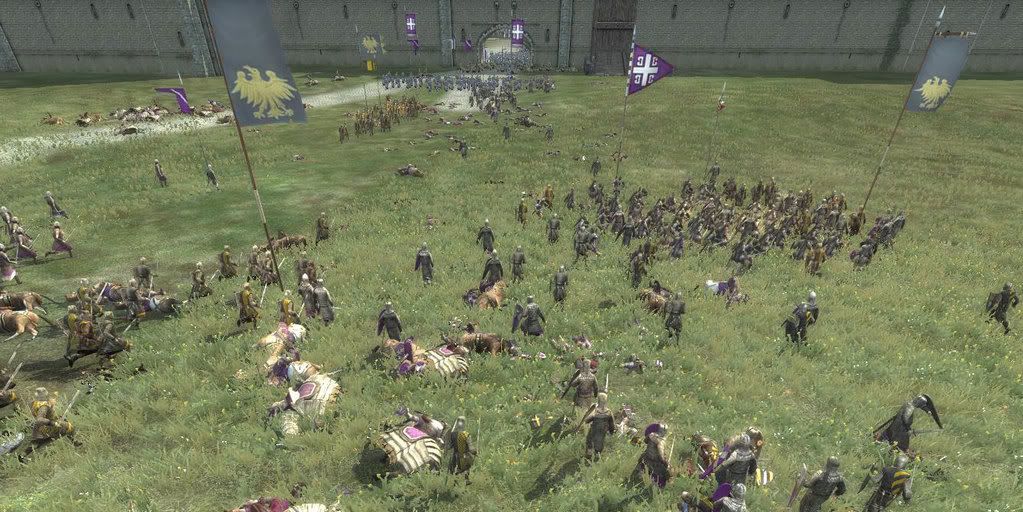
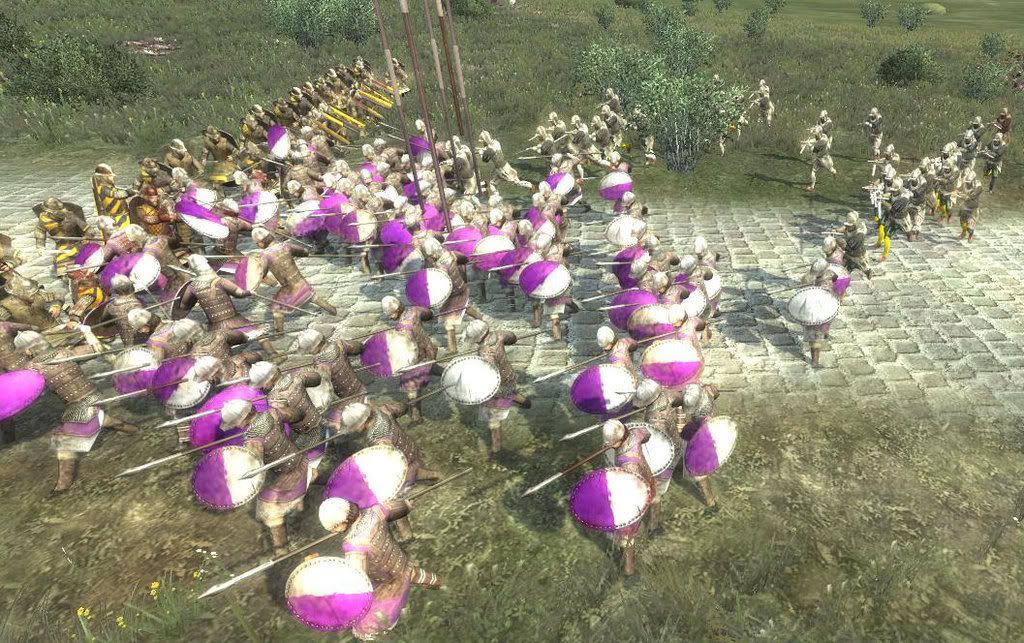
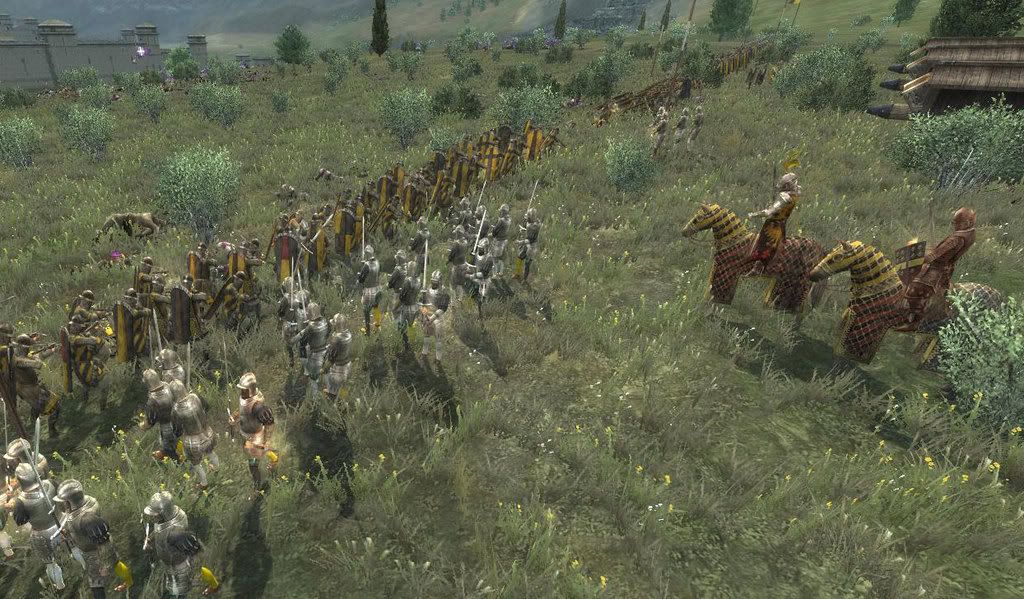


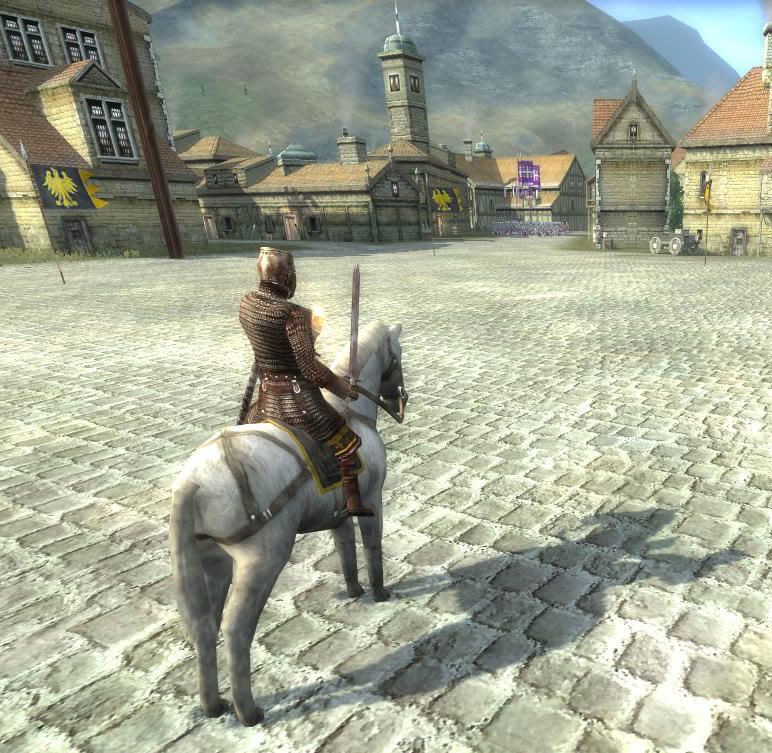

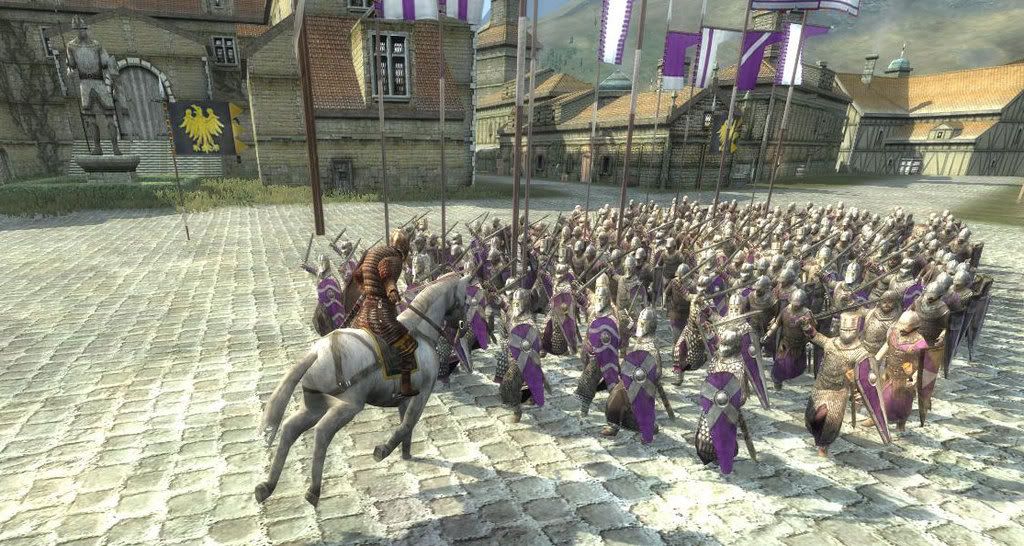

 Reply With Quote
Reply With Quote












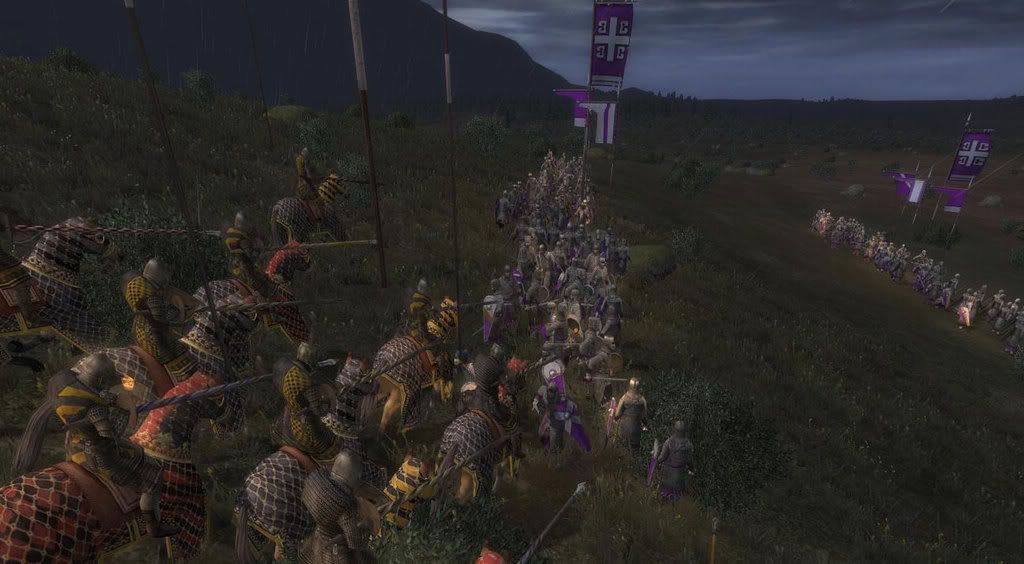

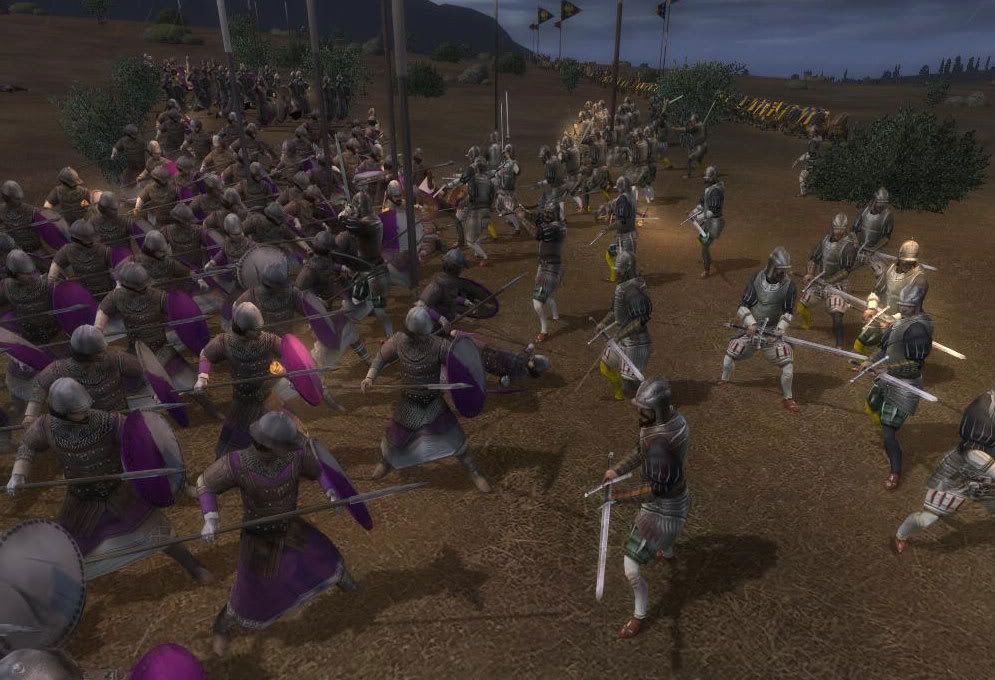






 <a
<a 



















































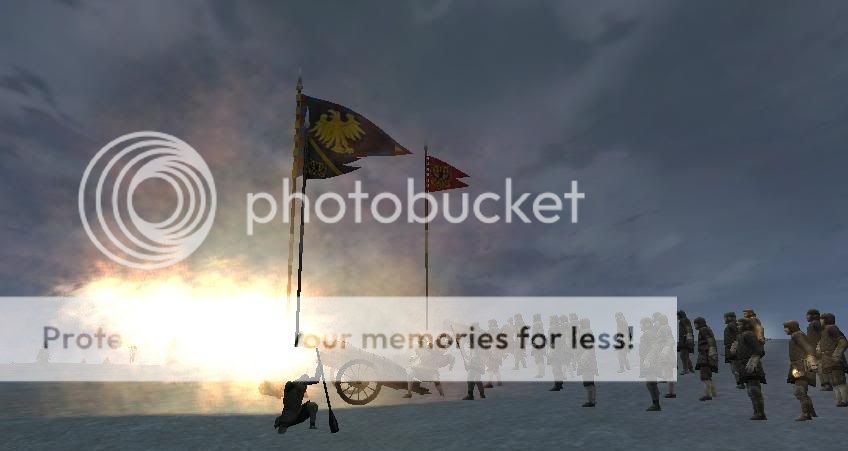
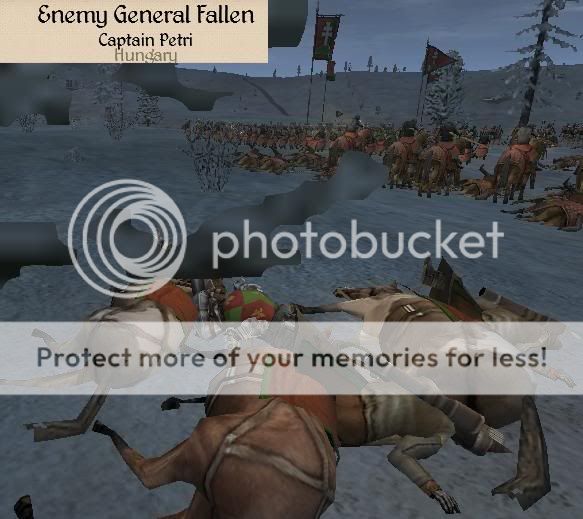
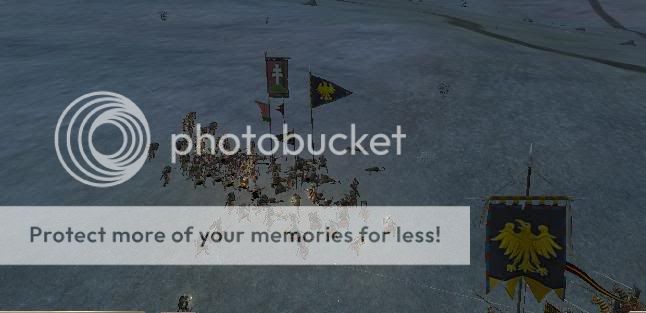
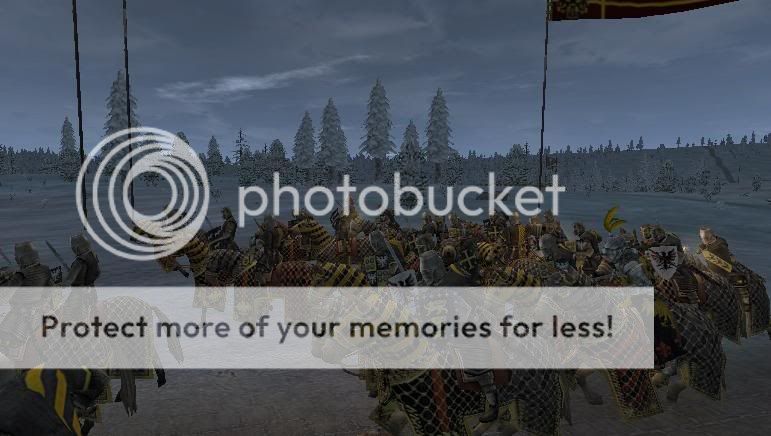
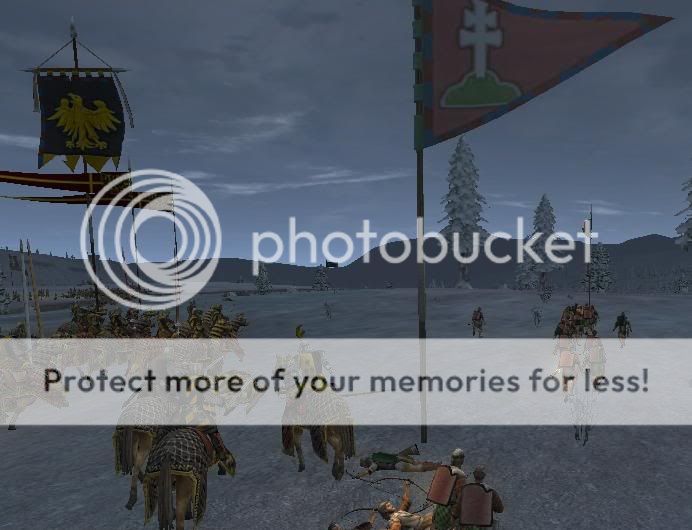
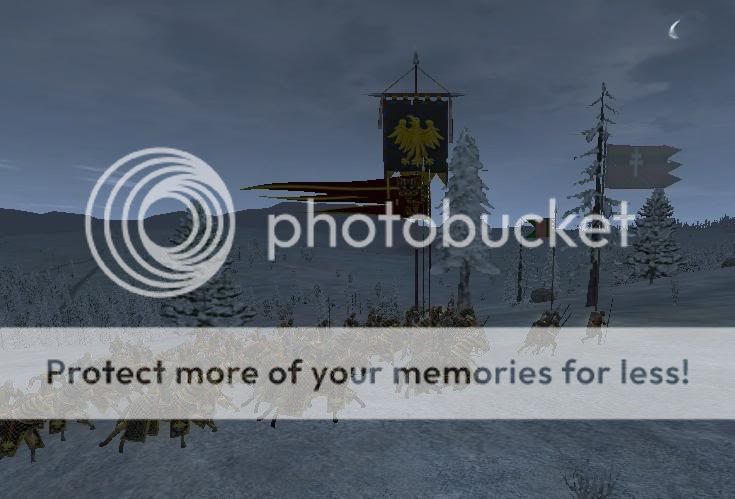
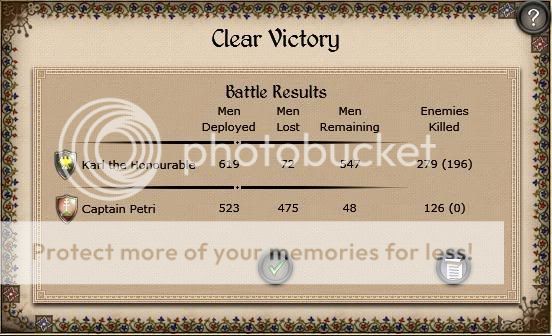
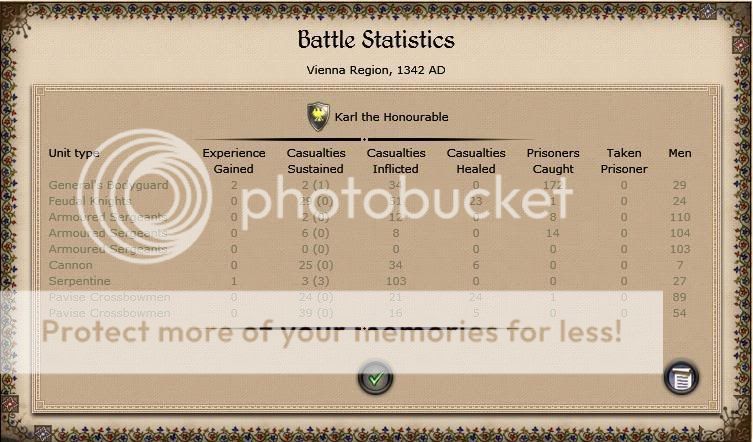
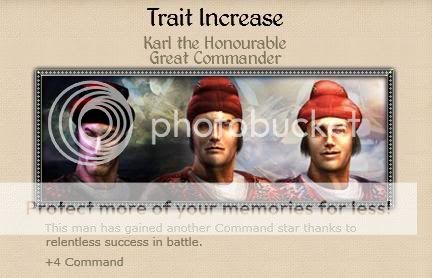
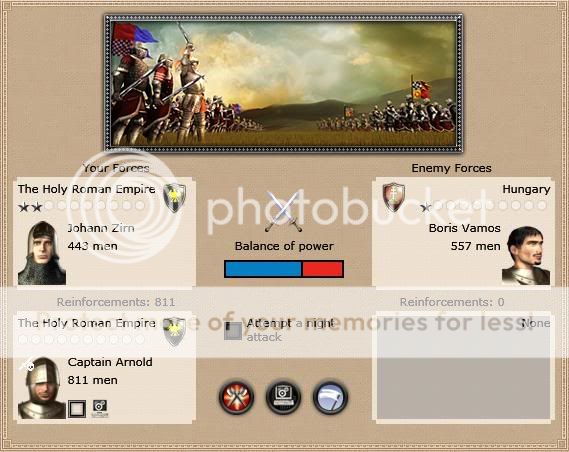
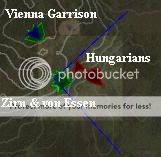
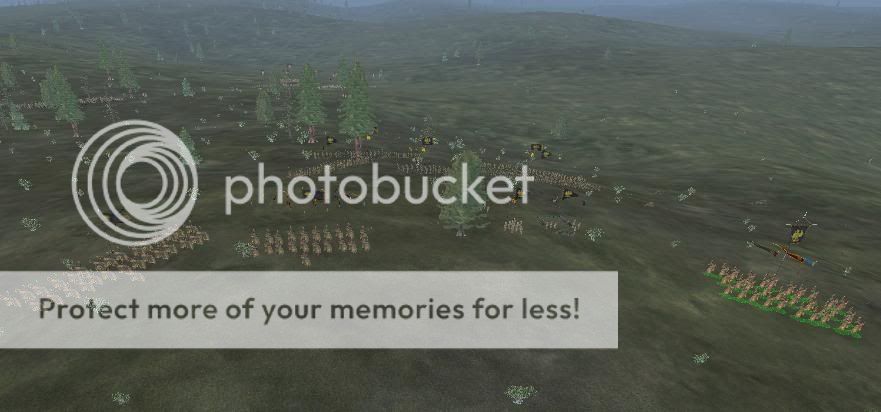
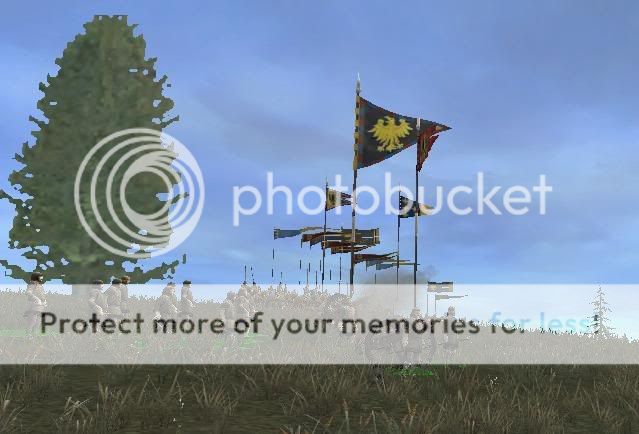
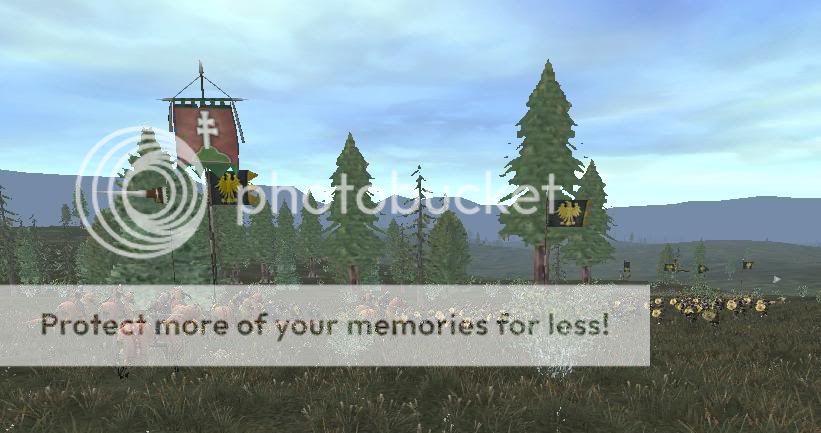
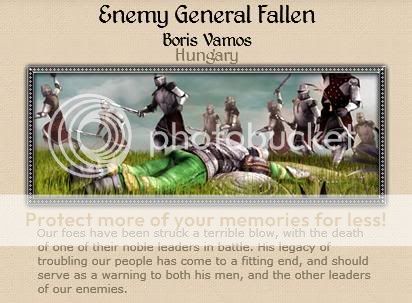
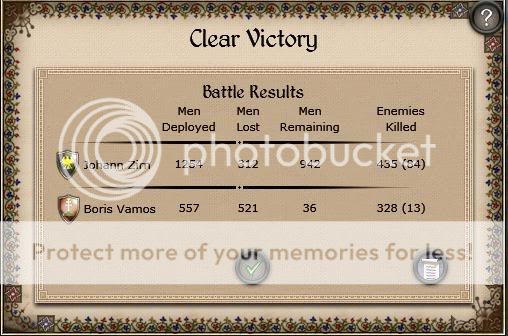
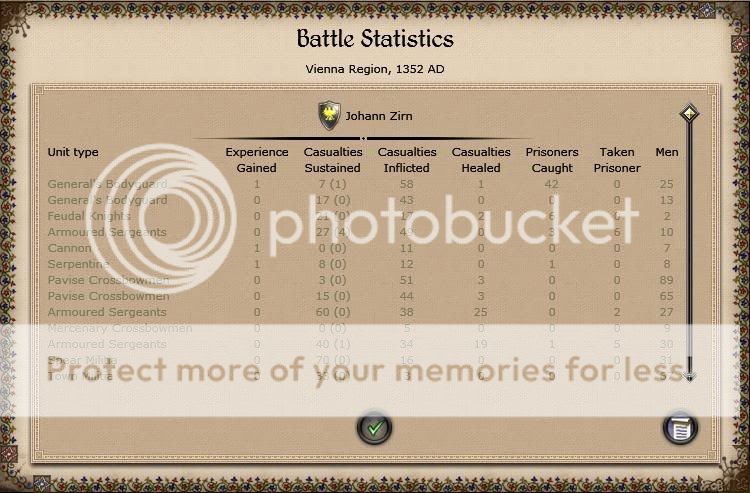
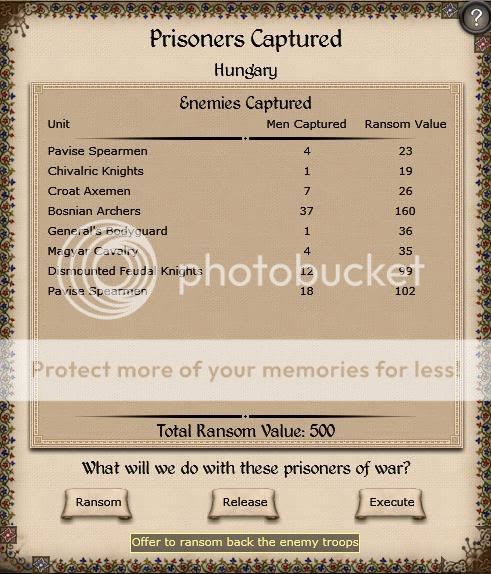
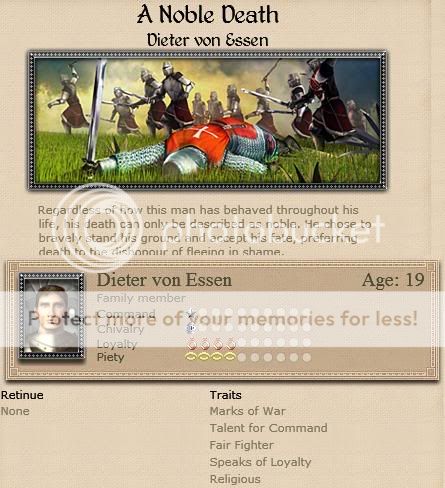

Bookmarks